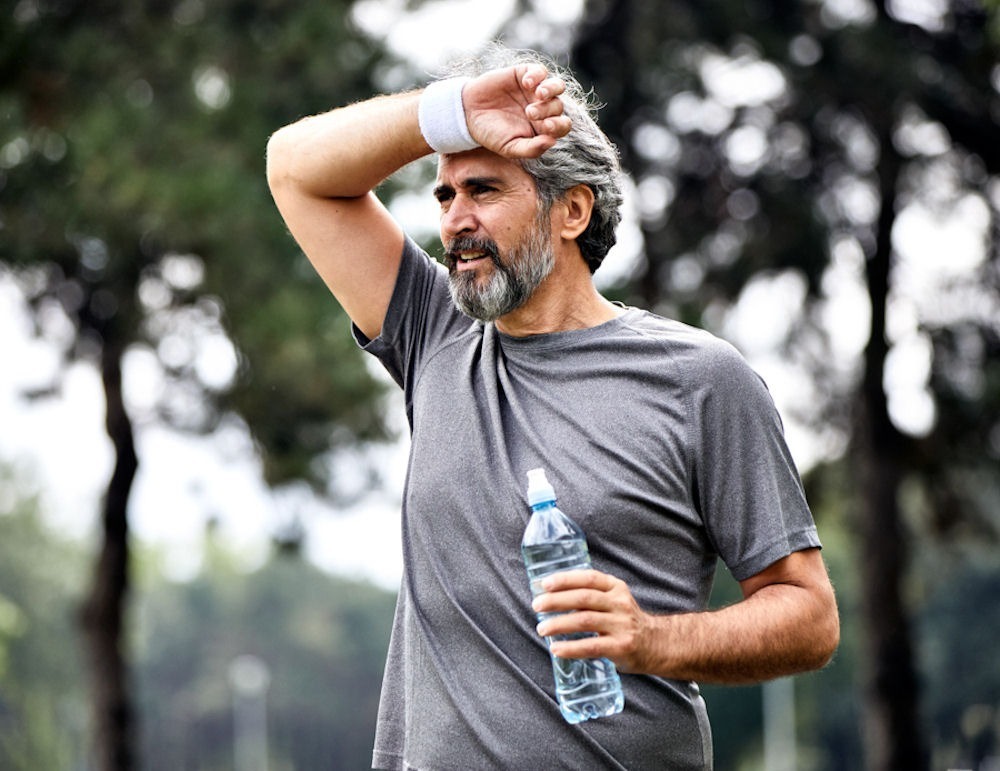Hair loss can be a distressing side effect of cocaine use. While cocaine doesn’t directly cause hair to fall out, its effects on the body—such as poor nutrition, hormonal imbalances, and stress—can lead to significant hair thinning or loss. Long-term cocaine use often disrupts the natural hair growth cycle, making it harder for the body to maintain healthy hair. Stress, a common trigger for hair loss, is heightened by cocaine’s impact on the central nervous system. Additionally, cocaine reduces blood flow to the scalp, depriving hair follicles of essential nutrients and oxygen.
At Spero Recovery, we provide compassionate, evidence-based care to help people recover from substance use and regain their overall well-being. Our programs are designed to address not just addiction but also its physical and emotional effects, promoting long-term healing.
How Cocaine Affects the Body and Overall Health?
Cocaine impacts nearly every system in the body, causing short-term and long-term health problems that can be life-threatening if untreated. Here’s how cocaine affects the body:
- Cardiovascular System: Cocaine increases heart rate and blood pressure, significantly raising the risk of heart attacks and strokes—even in younger people.
- Respiratory System: Snorting cocaine damages nasal passages and can lead to breathing problems, while smoking it harms the lungs.
- Nervous System: Cocaine overstimulates the brain, leading to anxiety, paranoia, and in severe cases, seizures. Long-term use can alter brain chemistry, making recovery harder.
- Digestive System: Cocaine reduces appetite, leading to malnutrition and gastrointestinal problems, including ulcers and abdominal pain.
- Reproductive System: Cocaine can affect fertility and lead to complications during pregnancy.
Cocaine abuse interferes with the body’s natural balance, causing widespread damage. It reduces blood flow to vital organs, making it harder for the body to heal and function normally. The stress it places on the body weakens the immune system, leaving a person more vulnerable to infections and illnesses. Chronic use also impairs the body’s ability to absorb nutrients, leading to deficiencies that can impact everything from skin health to muscle strength.
The Link Between Cocaine Use and Hair Loss
Cocaine use takes a serious toll on the body, and hair health is no exception. Here’s how cocaine contributes to hair loss:
Cocaine places immense stress on the body, disrupting the balance of hormones that regulate hair growth. High levels of stress hormones, like cortisol, can push hair follicles into a resting phase, leading to thinning or shedding. Over time, this stress can result in chronic hair loss that’s difficult to reverse without addressing the underlying addiction.
Cocaine use often leads to poor eating habits and malnutrition. Hair needs essential nutrients like proteins, vitamins, and minerals to grow strong and healthy. When the body doesn’t get enough of these nutrients, hair follicles weaken, causing brittle strands and excessive shedding.
Cocaine reduces blood flow throughout the body, including to the scalp. Hair follicles depend on a healthy blood supply to receive oxygen and nutrients. When blood circulation is compromised, the follicles weaken, and hair growth slows or stops entirely.
Hair loss in cocaine users is often influenced by other lifestyle and health factors:
Lifestyle Habits Associated with Substance Use
Substance use often leads to habits like poor sleep, dehydration, and irregular hygiene. These behaviors can weaken hair, making it more prone to falling out.
Co-occurring Conditions Like Anxiety or Stress-Related Disorders
Many people who use cocaine also experience mental health challenges such as anxiety or stress. Chronic stress is a known cause of hair loss, compounding the effects of cocaine use on hair health.
Long-Term Impact of Addiction on Physical Well-Being
Prolonged drug use damages the body in ways that extend to hair health. Over time, the combination of poor nutrition, stress, and weakened immune function can lead to permanent hair loss or significantly reduced growth.
How Cocaine Use Affects Your Hair?
Cocaine use can have a visible impact on your hair’s health. One common issue is thinning hair, as cocaine interferes with the natural hair growth cycle. This disruption can lead to uneven shedding, leaving hair looking sparse. Additionally, dehydration and poor nutrition caused by cocaine use can weaken the hair shaft, resulting in brittle strands that are prone to breaking.
Another significant problem is the effect on the scalp. Cocaine reduces blood flow to the scalp, depriving hair follicles of the nutrients and oxygen they need to grow. This can lead to a dry, unhealthy scalp that struggles to support new hair growth.
Can Hair Loss from Cocaine Be Reversed?
The good news is that hair loss caused by cocaine use can often be reversed once the body begins to heal. Quitting cocaine is the first and most important step, as it allows your body to restore its natural balance. Supporting hair regrowth involves taking active steps toward better self-care and addressing the damage caused by substance use.
Steps to Support Hair Regrowth After Quitting Cocaine
- Improve Nutrition: Focus on a balanced diet rich in proteins, vitamins (especially B-complex and biotin), and minerals like zinc and iron. These vitamins and minerals are crucial for promoting healthy hair growth.
- Stay Hydrated: Drink plenty of water daily to improve overall scalp health and prevent dryness.
- Practice Scalp Care: Use gentle shampoos and conditioners to nurture your scalp and avoid harsh styling practices that may weaken hair.
- Manage Stress: Incorporate relaxation techniques like yoga or meditation to reduce stress, a known factor in hair loss.
- Seek Medical Advice: Consult with a healthcare professional to rule out any underlying conditions that might affect hair growth.
The Role of Nutrition, Hydration, and Overall Self-Care
A healthy body supports healthy hair. Nutrition and hydration are key to providing hair follicles with the nutrients and moisture they need. Eating whole foods, drinking enough water, and practicing good hygiene are simple yet effective ways to promote recovery and hair regrowth. Additionally, prioritizing sleep and regular exercise boosts your overall well-being, helping your body heal from the inside out.
Hair regrowth is not immediate and varies from person to person. On average, noticeable improvements may take three to six months, with full restoration often requiring a year or more. Patience and consistency in self-care are essential during this time.
Healing the Mind and Body at Spero Recovery
At Spero Recovery, we guide our clients toward lasting sobriety and equip them with the tools to heal both physically and emotionally. Sobriety is the foundation of recovery, and it plays a vital role in reversing the damage caused by cocaine use. As harmful substances are eliminated from the body, clients often experience noticeable improvements, such as better circulation, restored energy levels, and healthier hair growth.
Rebuilding confidence and self-esteem is another critical part of the recovery process. We create a supportive environment where people can focus on personal growth and overcome feelings of guilt or shame. Through group therapy sessions, peer mentorship, and individualized coaching, clients celebrate their progress and regain a sense of self-worth, empowering them to face life’s challenges with resilience.
Our holistic approach includes:
- Nutritional Counseling: Clients learn how to fuel their bodies with essential vitamins and minerals to restore their physical health, which can improve energy, immunity, and even hair regrowth.
- Fitness Programs: Structured physical activities help rebuild stamina, strength, and overall vitality, supporting both mental and physical recovery.
- Mindfulness Practices: Techniques like yoga and meditation help reduce stress, manage triggers, and create a sense of emotional balance.
- Experiential Therapies: Activities like gardening and outdoor adventures reconnect clients with nature, fostering joy and promoting healthy routines that enhance long-term wellness.
By addressing the mind, body, and spirit, Spero Recovery provides a comprehensive healing experience. Our clients gain not only the skills to maintain sobriety but also the confidence and habits needed to build a healthier, more fulfilling life. Through personalized care and holistic therapies, we help clients heal and thrive.
Take the First Step Toward Recovery with Spero
Cocaine addiction may feel daunting, but recovery is within reach. At Spero Recovery, we encourage people to take that brave first step toward change. Asking for help is a strength, and it lays the groundwork for a healthier, more promising future.
Spero Recovery is dedicated to helping people achieve lasting sobriety. Our men’s residential program provides a supportive, structured environment where clients can focus on healing. Through group therapy, peer support, and holistic wellness activities, we help clients build the skills and confidence needed for long-term recovery. Each person receives personalized care to address their unique needs and challenges.
Sobriety not only breaks the cycle of addiction but also restores physical health and well-being. With better nutrition, regular exercise, and stress management, clients often regain their energy, confidence, and sense of purpose. Physical recovery is the first step to rediscovering the joy and potential in life.
If you or someone you know is ready to start their journey to recovery, contact Spero Recovery today. We’re here to guide you every step of the way, offering the tools and support you need to build a brighter, healthier future. Let’s take that first step together.





